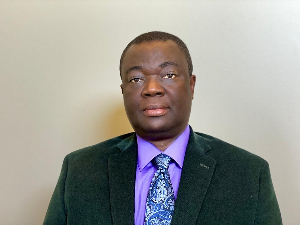Accra, April 15, GNA - Health experts on Tuesday called for the acceleration of the pace of Primary Health Care (PHC) in Ghana to meet the Millennium Development Goals (MDGs). They said although a lot had been achieved during the past 30 years after the Declaration of Alma Ata: International Conference on Primary Health Care", held in Alma Ata USSR 1978, work of the PHC had been slow and patchy and a lot more needed to be done at the urban areas while that of the rural area should be intensified.
The experts made the call at a day's panel discussion of primary health care organised by the World Health Organisation (WHO) as part of the organisation's 60 anniversary and 30 years of primary health care. The discussion was under the theme: "30 years of Primary Health Care - Its Impact on the Health of Ghanaians".
Dr. Irene Agyapong, Greater Accra Regional Director of Health Services who spoke under the theme; "Primary Health Care with Reference to Health Sector Reforms" said PHC formed an integral part of the country's health system and was the first level of contact of individuals, the family and community within the national health system. This, she explained should bring health care as close as possible to where people lived and worked, and should constitute the first element of a continuing health care process.
She noted that as a nation the success in PHC implementation had been partial and had not had a consistent long term strategic approach to PHC and health sector development as was needed for an impact. Dr. Agyapong attributed the problems to the nation being mainly dependent on external assistance, financial and human resource scarcity, capacity problems.
She also attributed economic setbacks of the 1970s to the drastic contraction of national economies, skewed national resource allocation lack of priority for national health sector development Inequity and narrow project focus, which led to a large reduction in health spending with health service indicators showing negative trends. Dr George Amofa, deputy Director-General of Ghana Health Service who also spoke on "The Contribution of PHC towards the Achievements of MDGs, Particularly number 4, 5 and 6" said PHC was identified as the main strategy to achieve Health For All in 1979 and that it was human rights and social goal that needed to be addressed.
He explained that the complexity of health under the concept made it clear that no single ministry, agency or sector had all the requisite resources, skills and even authority to prosecute all the interventions required to improve health and to achieve that, called for a multi-sector approach working through partnership. Parts of the MDGs -"4, 5, 6" that were to be addressed were; Reduce child mortality, Improve maternal health and Combat HIV/AIDS, malaria and other diseases.
Dr Amofa said achievements needed a multi-sector, multi-agency in partnership and strong community participation and an appropriate technology of the Village Health Workers as well as political commitment.
"PHC formed the foundation and basis for the declaration and strategies outlined for the MDGs. We therefore have a lot to learn from the successes and failures of PHC in order to achieve the MDGs". Dr Joachim Saweka, WHO Country Representative said efforts were on-going to provide integrated health services that were accessible, affordable and good qualities that would generate the necessary human and physical resources to make PHC possible.
He noted that WHO was re-enforcing its technical collaboration and support to countries through their governments, private sector and civil societies that were engaged in health care.
"This support will come from all levels of WHO and will be displayed in specific country cooperation strategies. Strengthening WHO's presence in countries and intensifying country level collaboration is the best way for the Organisation to accelerate progress towards the goals that unite the global health community: measurable health improvement for all, and vigorous strides to close equity gaps".
General News of Tuesday, 15 April 2008
Source: GNA












